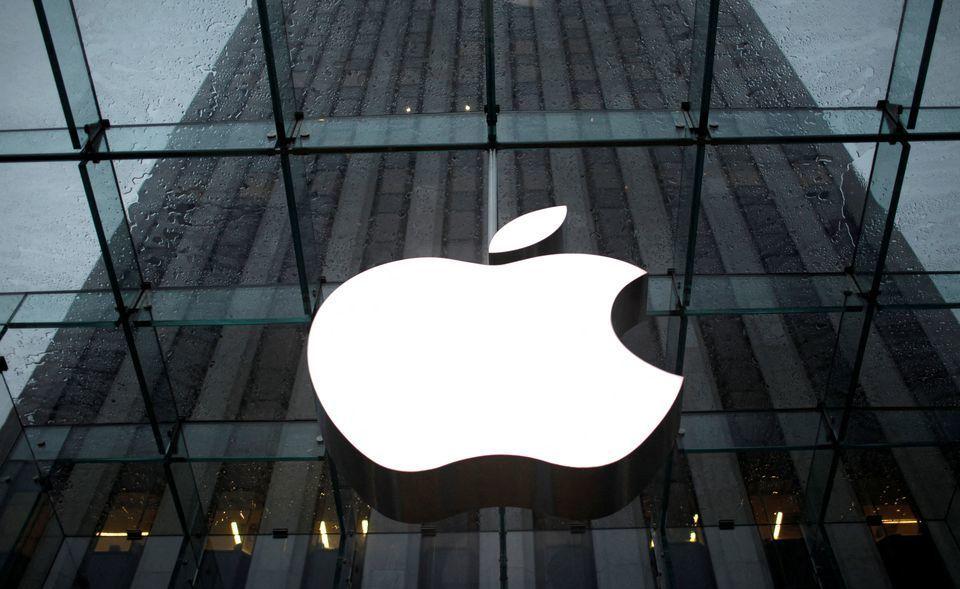
Killer Whale | New York, Jan. 5 Earlier this week, Apple's market capitalization soared to $3 trillion, refocusing investors' attention on the huge growth stocks that accounted for a large portion of the S&P 500's 2021 gains and whether they can continue to push the index higher in the new year.
Microsoft (MSFT. O), Apple (AAPL. O), NVDA. O)、Alphabet (GOOGL. O) and Tesla (TSLA. O) accounted for nearly a third of the total return of the S&P 500 last year. Data from UBS Global Wealth Management. The bank said that was more than double the average contribution of the index's five biggest gains since 1985. The S&P 500 returned 28.7 percent last year, including dividends.
Over the past decade, the explosive growth brought by tech-focused giants has helped drive the rapid rise of the S&P index. However, some investors worry that large tech stocks may struggle to achieve a sharp rally this year amid overvaluations, expectations of rising U.S. Treasury yields and a more hawkish Fed.
Yardeni Research shows a forward price-to-earnings ratio of 27.9 in the S&P 500 technology sector, near its highest level since 2004 and well above the broader market's 21.3. Nvidia has a price-to-earnings ratio of 56 times, while Tesla in the non-consumer discretionary industry has a price-to-earnings ratio of 119 times.
Sela malik, chief investment officer for nuveen global equities, said high valuations could make those stocks more vulnerable to higher yields, and the Fed expects to raise rates several times this year.
"The broad returns we've seen in the tech sector over the past year have been based in part on supportive monetary policy, which we won't see in 2022," she said.
The sometimes worrisome relationship between high yields and tech stocks emerged on Tuesday, when bets on the strength of the U.S. economy fueled U.S. Treasury yields and boosted energy companies, banks and industrial tech stocks.
Tech stocks had another tough day on Wednesday, with the Nasdaq Composite recently down 0.7 percent. Read more
While Malik maintains positions in large tech stocks that are lagging the broader market, including Amazon, she also focuses on energy companies such as Pioneer Natural Resources (PXD. N), she expects these companies to benefit from rising demand for jets as business and leisure travel rebounds.
Malik said: "As returns become more widespread and the Covid variant has less impact on liquidity, we expect more fragmentation in the market. ”
Scott Wren, senior global market strategist at Wells Fargo's Investment Institute, said easing concerns about the severity of the Omicron wave could also weaken some demand for tech stocks.
Tech stocks have often become a safe haven for investors amid COVID-19 concerns because their earnings are less sensitive to economic volatility, and many companies in the industry have also benefited from the home-based trend of the past two years.
While he expects tech stocks to keep pace, Wren has also increased his holdings in industrial stocks that should benefit from U.S. infrastructure spending.
Meanwhile, UBS wrote Tuesday that big tech companies are no longer as attractive as smaller ones that don't focus on consumers.
"We no longer see [mega-caps] as the best place to look for excess returns in the tech industry. We expect artificial intelligence, big data, and cybersecurity to bring more value," their report notes.
According to Refinitiv IBES, the Information Technology segment of the S&P 500 Index (. SPLRCT) is expected to see earnings grow by 15.9 percent in the fourth quarter, while overall earnings from the S&P 500 index will grow by 22.3 percent.
Jack Janasiewicz, portfolio manager at Natixis Investment Managers, said the recent decline in highly valued tech stocks suggests that as the economy continues to rally across the board from the coronavirus pandemic, investors are increasingly focused on companies that have the ability to pass on rising prices to consumers.
He has recently increased his holdings in cyclical industries such as finance and homebuilders.
"We think we've passed the peak of the risk cycle and people are willing to bet on technology names just because they're technology," he said.